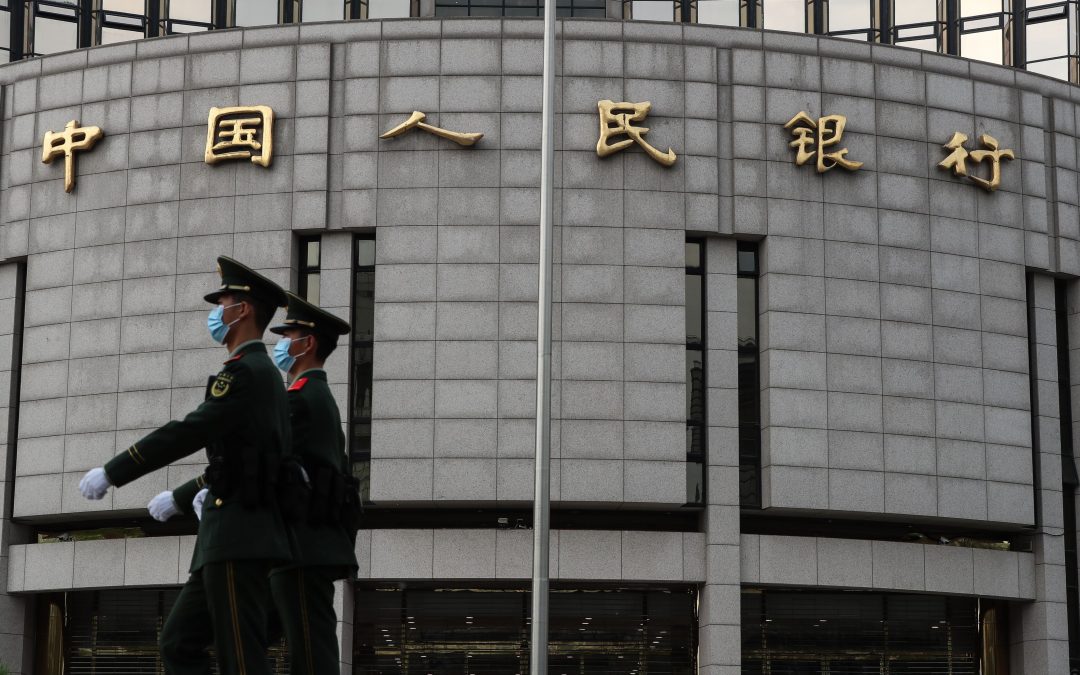Things are getting worse for crypto in China. A comparison of China’s crypto trading ban Friday and previous crypto-related bans reveals the latest version is the most serious yet.
The People’s Bank of China (PBoC) announced tougher measures on crypto trading that, for the first time, makes illegal crypto-related transactions, including services provided by off-shore crypto exchanges.
The Sept. 24 notice bans banks and other financial institutions from offering services related to crypto, including transactions of fiat to crypto currencies, or from one crypto to another. Anyone facilitating trades is subject to legal prosecution, including those individuals who live inside China but work for off-shore crypto exchanges that provide service to China.
Those working in tech support, marketing strategy and payment and settlement will also be investigated for knowingly participating in the crypto business.
Read more: China Tightens Crypto Mining Crackdown, Bans Trading
More parties are involved
Ten agencies, including the PBoC, were involved in Friday’s notice, a clear sign of the seriousness of the latest ban. Previous ones were signed by as many as seven agencies.
The ban “makes it clear it is a multi-agency effort,” said Bill Bishop, author of the Sinocism newsletter.
The Cyberspace Administration of China (CAC), the Supreme People’s Court (SPC), Supreme People’s Procuratorate (SPP), and Public Security Bureau (PSB) are now involved in the latest crackdown. The involvement of law enforcement agencies, rather than civil entities, means crypto trading in China now has added a “financial crime aspect,” Bishop told CoinDesk.
Broadly speaking, SPC, SPP and PSB are the three main parts of China’s judicial system. That signifies that this time China really means business.
“It is important to see the issuers of the notice,” said Rachel Lin, founder and CEO of Asia-based decentralized finance (DeFi) derivatives platform SynFutures. “The involvement of law enforcement agencies makes the nature [of the crackdown] this time much more serious.”
CAC, which was involved in the initial coin offering (ICO) ban in China in 2017, has some major functions in “directing, coordinating and supervising online content management and handling administrative approval of business related to online news reporting,” according to online legal service Practical Law.
“The CAC will go after any sites and services that advertise or provide access to offshore crypto platforms,” Bishop added.
New view on crypto trading
Some market observers see nothing new in this most recent crypto ban. China has been banning things related to crypto since 2013, the year China barred financial institutions from offering services related to bitcoin. However, the same notice acknowledged bitcoin can be freely traded and exchanged as a commodity online.
But this most recent ban makes clear that crypto trading activity involves “legal risks” and “any legal person, unincorporated organization or natural person” who is investing in virtual currency and related derivatives violates “public order and good customs.”
Crypto trading-related “civil legal acts are invalid and parties should be responsible for any losses resulting from crypto trading activity by themselves,” according to Friday’s notice.
“We view this as essentially saying ‘hold crypto and trade at your own risk. You won’t have remedies if something happens,’” one China-based crypto VC firm wrote in a note viewed by CoinDesk. “How ‘public order and good customs’ are defined will become a focus of attention in the future as the current statement is quite vague.”
The firm asked to remain anonymous due to the sensitivity of the subject.
The elevated crackdown cites nine laws and rules, including Regulation on the Prevention and Treatment of Illegal Fund-raising, and Regulation on the Administration of Futures Trading.
“This is certainly much bigger and more expansive than the destruction of the mining industry,” Bishop said. “It could easily be construed as making anything related to crypto possibly illegal under the menu of statutes the notice cites.”
Dates discrepancy
Some market observers noted the dates of the two notices (one on trading, the other on mining) showed they were written long before they were issued on Friday.
The crypto trading ban issued by the PBoC was dated Sept. 15; the crypto mining ban from China’s National Development and Reform Commission (NDRC) was dated Sept. 3. China insiders said the gap is no surprise because of the coordination involved in the drafting of the documents.
“Few in China have questioned the dates [since] everyone is used to policies that are released days ago only go public later,” said China-based crypto influencer Colin Wu.
Silver lining?
Despite the severity of the new language, some have remained positive about crypto’s future when it comes to China.
Justin Sun, the founder of the Tron blockchain, pointed out the latest ban does not deny citizens’ “freedom of owning and exchanging virtual currency,” meaning there’s no clear ban on crypto possession. This goes along with the 2013 ban, which states bitcoin trading is similar to commodity trading.
“Do not be too pessimistic about it,” he told CoinDesk via WeChat audio messages. “…I think the biggest possibility in the future is that once major countries in Europe, North America as well as Japan, South Korea have come out with clearer regulatory policies on crypto, China will slowly introduce laws and regulations on crypto, too.”
Huobi, a popular crypto exchange in China, declined to comment on the ban, while OKEx told CoinDesk it is “still looking into it.”














